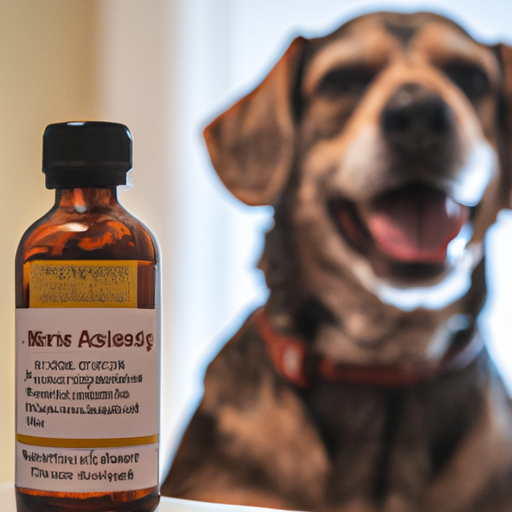As a caregiver, you’re no stranger to the discomfort and distress that inflammation can cause in your beloved canine companion. The good news is, there are a variety of remedies you can consider to ease their suffering. In this article, we’ll explore five key options that might be right for your furry friend.
1. Over-The-Counter (OTC) Medication
Before you start rummaging through your medicine cabinet, it’s crucial to remember that not all human medications are safe for dogs. However, some OTC drugs, such as Aspirin, can be used in strictly controlled doses. It’s essential to consult with your vet before administering any human medication to your pet.
| Human Medication | Safe for Dogs? |
|---|---|
| Aspirin | Yes, with vet guidance |
| Ibuprofen | No |
| Naproxen | No |
| Acetaminophen | No |
2. Prescription Medication
If OTC options aren’t suitable, your vet might prescribe specific anti-inflammatory drugs designed for dogs. These can include non-steroidal anti-inflammatory drugs (NSAIDs) or steroids such as prednisone.
- NSAIDs: These are often used for arthritis, but can also help with other types of inflammation.
- Steroids: These are powerful drugs used for more severe inflammation, but they come with more potential side effects.
3. Natural Remedies
Sometimes, the solution to your dog’s inflammation might be found in nature’s own pharmacy.
- Fish oil: Rich in omega-3 fatty acids, fish oil can help reduce inflammation.
- Turmeric: This spice has been used for centuries in traditional medicine for its anti-inflammatory properties.
- CBD oil: Emerging research suggests CBD oil might help with inflammation, but more studies are needed.
4. Dietary Changes
In some cases, changing your dog’s diet can help control inflammation. High-quality, balanced meals that are rich in lean proteins, fruits and vegetables, and healthy fats can support overall health and reduce inflammation.
5. Physical Therapy and Exercise
Regular, gentle exercise can help manage inflammation by strengthening your dog’s muscles and joints. Physical therapy might also be an option if your vet thinks it could help.
FAQs
Q: Can I give my dog human anti-inflammatory drugs?
A: Some can be used, like Aspirin, but only under vet guidance. Never give your dog Ibuprofen, Naproxen, or Acetaminophen.
Q: Are natural remedies effective for dog inflammation?
A: Some, like fish oil and turmeric, have proven benefits. Others, like CBD oil, need more research.
Q: Can diet change help with my dog’s inflammation?
A: Yes, a balanced diet rich in lean proteins, fruits and vegetables, and healthy fats can reduce inflammation.
Remember, when it comes to your dog’s health, always consult with a professional veterinarian before making any major changes to their diet, exercise routine, or medication regimen.



